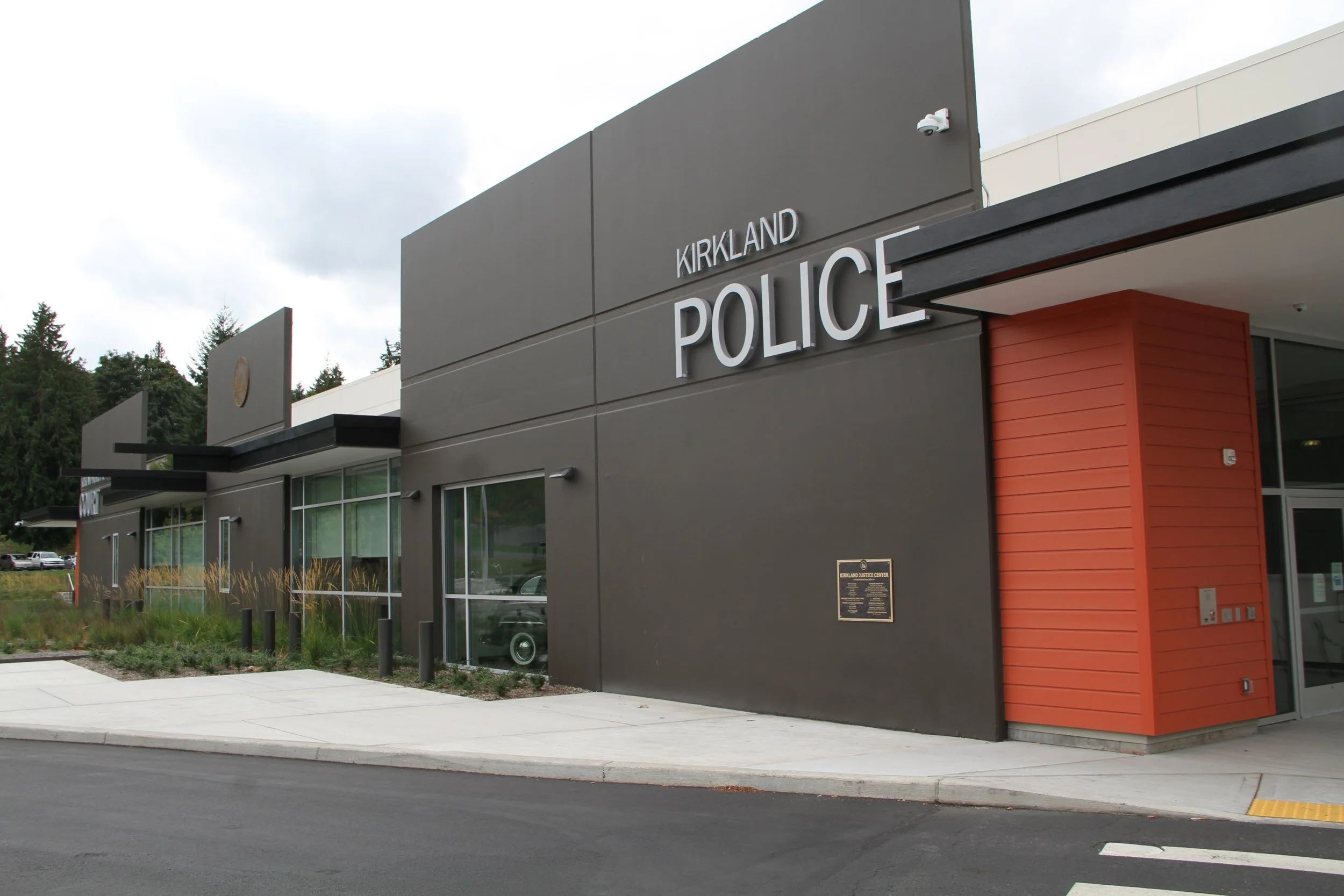Kirkland, WA
Kirkland City Jail
washington
Suburban | Population: 165,355Just east of Seattle lies the City of Kirkland, a suburban area of King County, Washington. In the years before implementing their 2023 BJA grant, Kirkland City Jail had encountered many of the same problems as other small facilities, such as maintaining medical staff and attracting outside service providers to the jail. At the project outset, site leads weren’t sure they could secure a provider to administer medication-assisted treatment, let alone establish holistic recovery supports. Establishing the robust medication-assisted treatment program they envisioned would require creativity and a responsiveness to changing circumstances.
Leaning into Unforeseen Opportunities
Agility is an often-cited element of successful grant programs, and this holds true for Kirkland. As the project got underway, opportunities arose that site leads hadn’t anticipated when writing the grant. For example, while not part of their original plan, the site developed a peer recovery network. While this meant a temporary change in focus, the result is that the jail can now offer peer recovery services to anyone who needs them. Another unexpected opportunity came in the form of a newly developed crisis center, which happened to be built just down the street from the jail.
Seeing a chance to connect people to resources they wouldn’t otherwise be able to provide, the jail began to provide transportation to the Connections Crisis Clinic at release. After being dropped off by an officer and accepting services voluntarily, reentrants are guaranteed a 24-hour stay (longer, if needed), during which the clinic will assess their medications, provide therapeutic services, and make resource linkages. While devoting time and resources to the peer network and crisis center partnership resulted in a changed project timeline, these pieces became critical resources. Being able to embrace these kinds of opportunities, while keeping an eye on long-term goals, was an important facet of program success.
Key Program Components
341
incarcerated individuals referred to mat program
190
incarcerated individuals initiated treatment
Jail-Based Medication-Assisted Treatment Program
The jail provides medically assisted detoxification services, offering a safer approach to withdrawal, as well as Medication-Assisted Treatment services. People incarcerated at the jail can continue and initiate medication treatment. To date, 341 people have been referred to the medication-assisted treatment program, and 190 have initiated treatment.
Staff Training
21
staff members received education about sud and mat
The program offers training to corrections, law enforcement, and court staff, as well as individuals, families, and the community. Twenty-one staff members have received education about SUD and medication-assisted treatment.
Recovery Navigation Services
The program creates a jail navigator position, specifically addressing recovery needs such as medication, housing, and transportation. The site also partnered with the King County Navigator Program (RNP), which enhances support for individuals at risk of arrest due to unmet behavioral health needs.
Facilitated Reentry Transitions
Individuals receive services and connections to community-based resources through a structured reentry planning process.
Key Achievements
Enhanced management of jail-based detoxification via medication support.
Increased access to medication-assisted treatment in jail.
Established community partnerships for facilitated reentry transitions.
Connected participants to jail and community-based recovery resources.
Embedding Treatment into Culture
For the medication program, staff and participant acceptance were intertwined. “I don't think we'd have as much participation if the officers didn't believe in it,” Program Director Melissa Petrichor explains. When staff started believing in the program, they went beyond routine screening. Rather, they began to talk with people about their circumstances and how they might benefit from the program.
Notably, the program hasn’t just impacted participants; it’s also created an entirely different workplace environment for staff. Reflecting on a time before the medication-assisted detoxification process, Petrichor comments that “watching a human being go through that—that's stressful for my staff.” Officers at Kirkland City Jail “like the fact that these folks are getting taken care of,” she says. Now that this program is in place, “it’s integral to their job.”
Key Takeaways
By exercising agility, welcoming opportunities for collaboration, and fostering a more compassionate culture, Kirkland City Jail has transformed its approach to substance use treatment and recovery. The site demonstrates the impact of medication programs, even with a small jail population, and the resources that can be found when looking outside the box.
Collaborative Partners
Kirkland City Jail
Kirkland City Attorney’s Office
Kirkland Municipal Court
Kirkland Probation Department
Kirkland Police Department
King County Recovery Navigator Program
Connections Crisis Clinic Kirkland
Project Director
Melissa Petrichor
City of Kirkland
mpetrichor@kirklandwa.gov
425-587-3405
This project was supported by Grant No. 15PBJA23GK02258COAP awarded by the Bureau of Justice Assistance. The Bureau of Justice Assistance is a component of the Department of Justice's Office of Justice Programs, which also includes the Bureau of Justice Statistics, the National Institute of Justice, the Office of Juvenile Justice and Delinquency Prevention, the Office for Victims of Crime, and the SMART Office. Points of view or opinions in this document are those of the author and do not necessarily represent the official position or policies of the U.S. Department of Justice.



